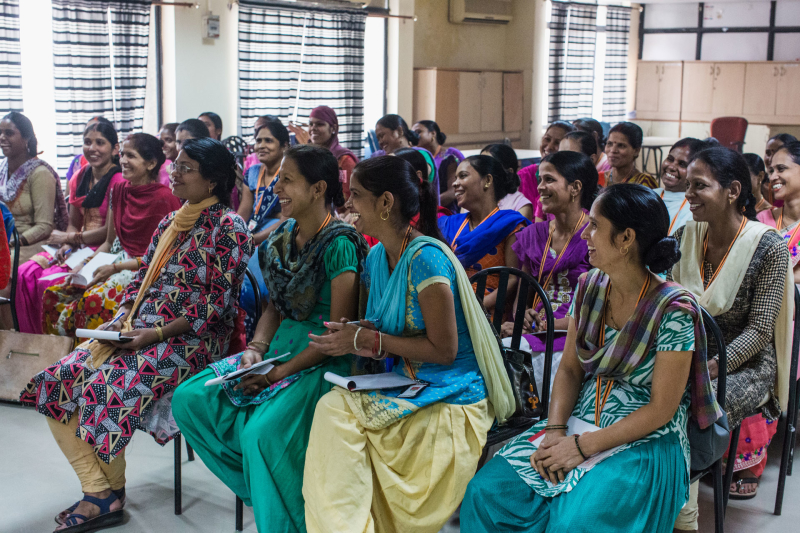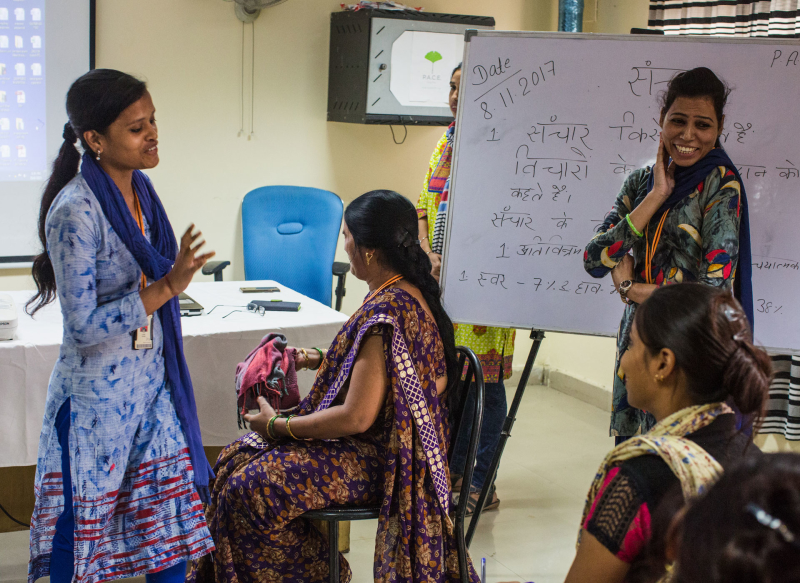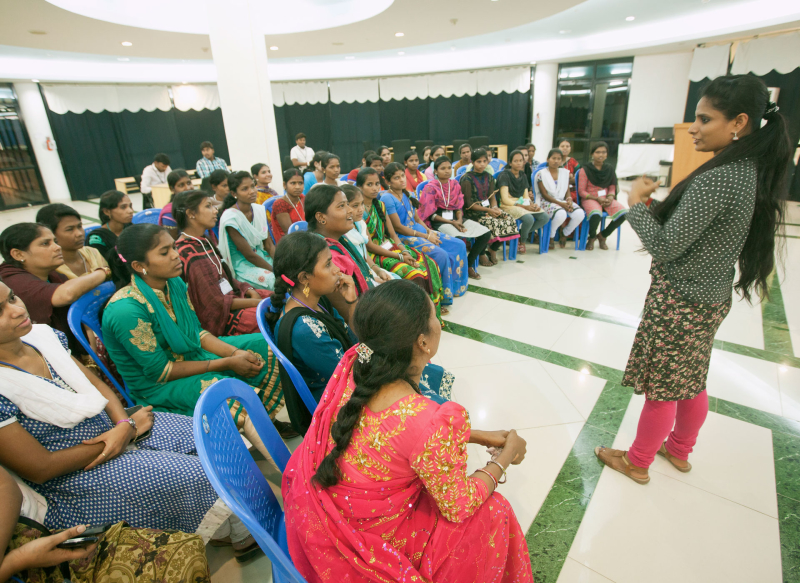FOCUS AREA
CLOSING THE SKILL GAP
LOCATION
Bengaluru
REACH
factories, 2700 female garment workers
PARTNERS
Yale University, Private Enterprise Development in Low-Income Countries (PEDL), Shahi Exports, University of Michigan, Gap Inc., Massachusetts Institute of Technology
STAGE
- DESIGN
- EVALUATE
- ANALYZE
- DISSEMINATE
- SCALE-UP
Soft Skills On The Factory Floor
CHALLENGES AND OPPORTUNITIES
The garment industry consistently sees high attrition rates. Women, who constitute most of its workforce, struggle in a variety of ways, including instances of abuse from supervisors, managing high production targets and household chores, and healthcare problems. They are often unable to speak up at the workplace about the issues they face. While companies traditionally invest in improving workers’ technical skills, they give little importance to soft skills. We evaluated an intervention which sought to fill this gap, deliver critical life skills to workers, and deliver concrete gains for manufacturers.
RESEARCH QUESTION
How can we improve women’s confidence and communication at the workplace? Can businesses benefit from such investments?
RESEARCH DESIGN
Under P.A.C.E, women garment workers are trained for more than 8 months in skills like effective communication, time management, problem-solving, and decision-making over eight months. We partnered with India’s largest garment exporter to test the social and business impacts of P.A.C.E. through a randomized controlled trial. In five of their factories in Bengaluru, India, we randomly assigned 80 production lines to treatment (P.A.C.E. training) and 32 lines to control (without access to P.A.C.E.). More than a thousand workers interested in undergoing training went through the P.A.C.E program.
FINDINGS AND IMPLICATIONS
The workers who undertook training:
- Showed a 20% boost in productivity and increased involvement in complex tasks.
- Produced six more garments per hour than workers who did not participate in P.A.C.E.
- Are 15% more likely to seek skill development, subsidized health care, and pensions.
- Improved levels of time-bound decision-making.
- Higher savings and improved aspirations for their children’s education.
By the end of the program, firms see a 12% net return on their investment. Our intervention demonstrates the benefits of soft skills training to both workers and manufacturers. As of 2019, Over 400,000 women in 17 countries have participated in P.A.C.E.
Image credits: Nayantara Parikh


